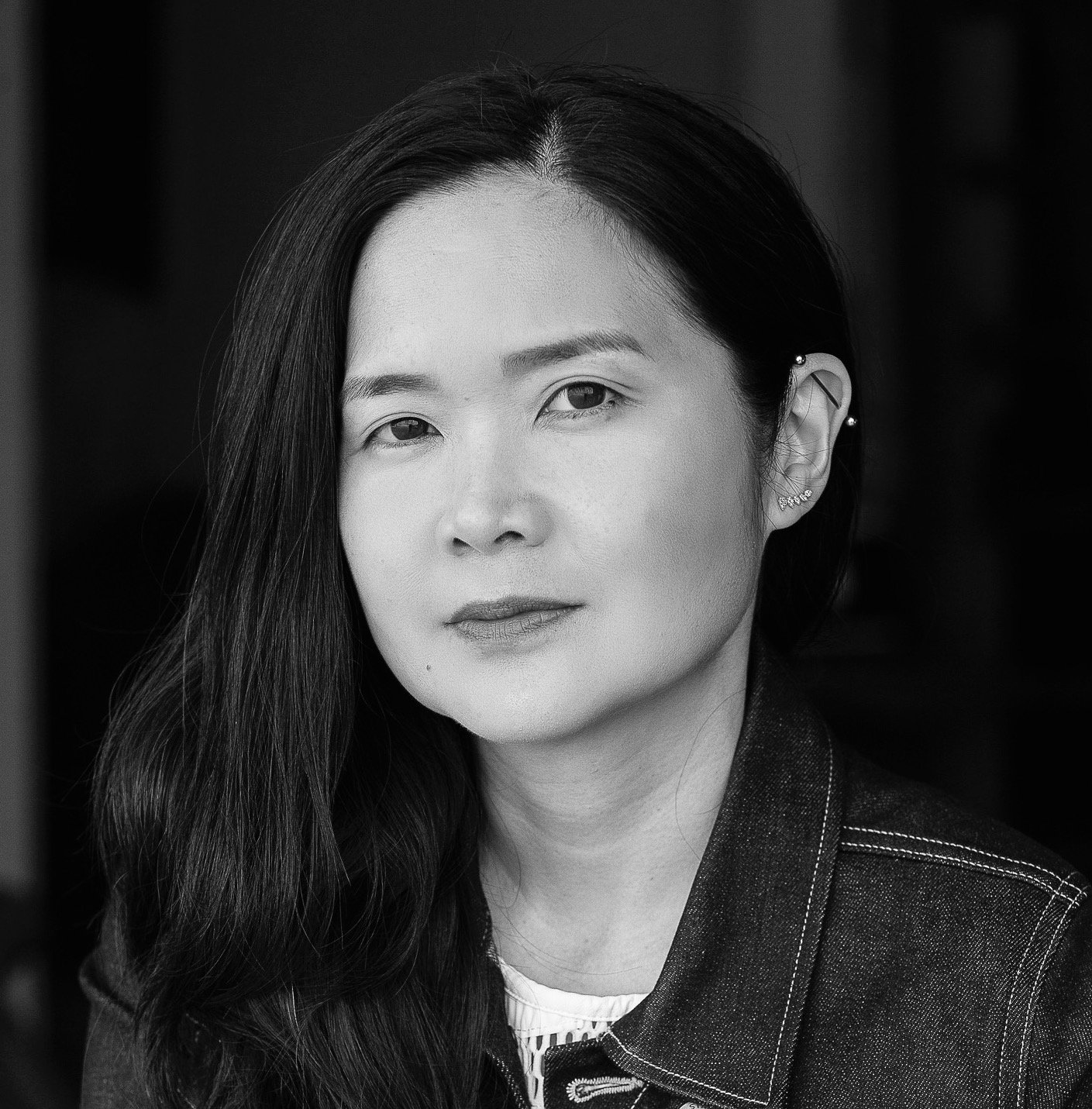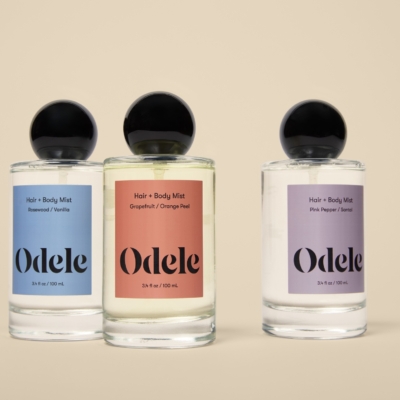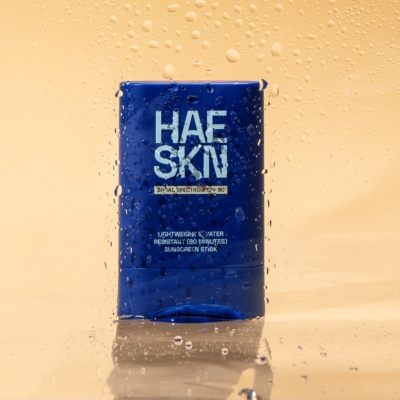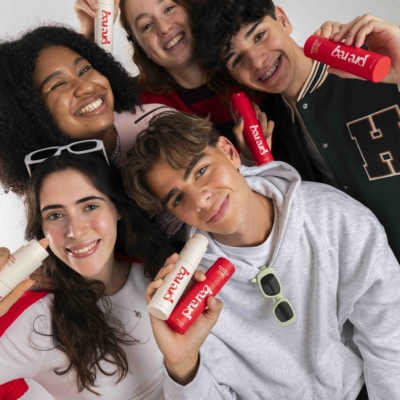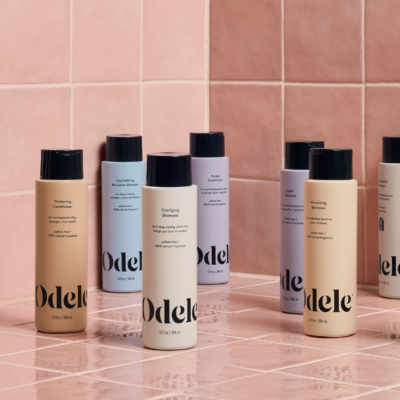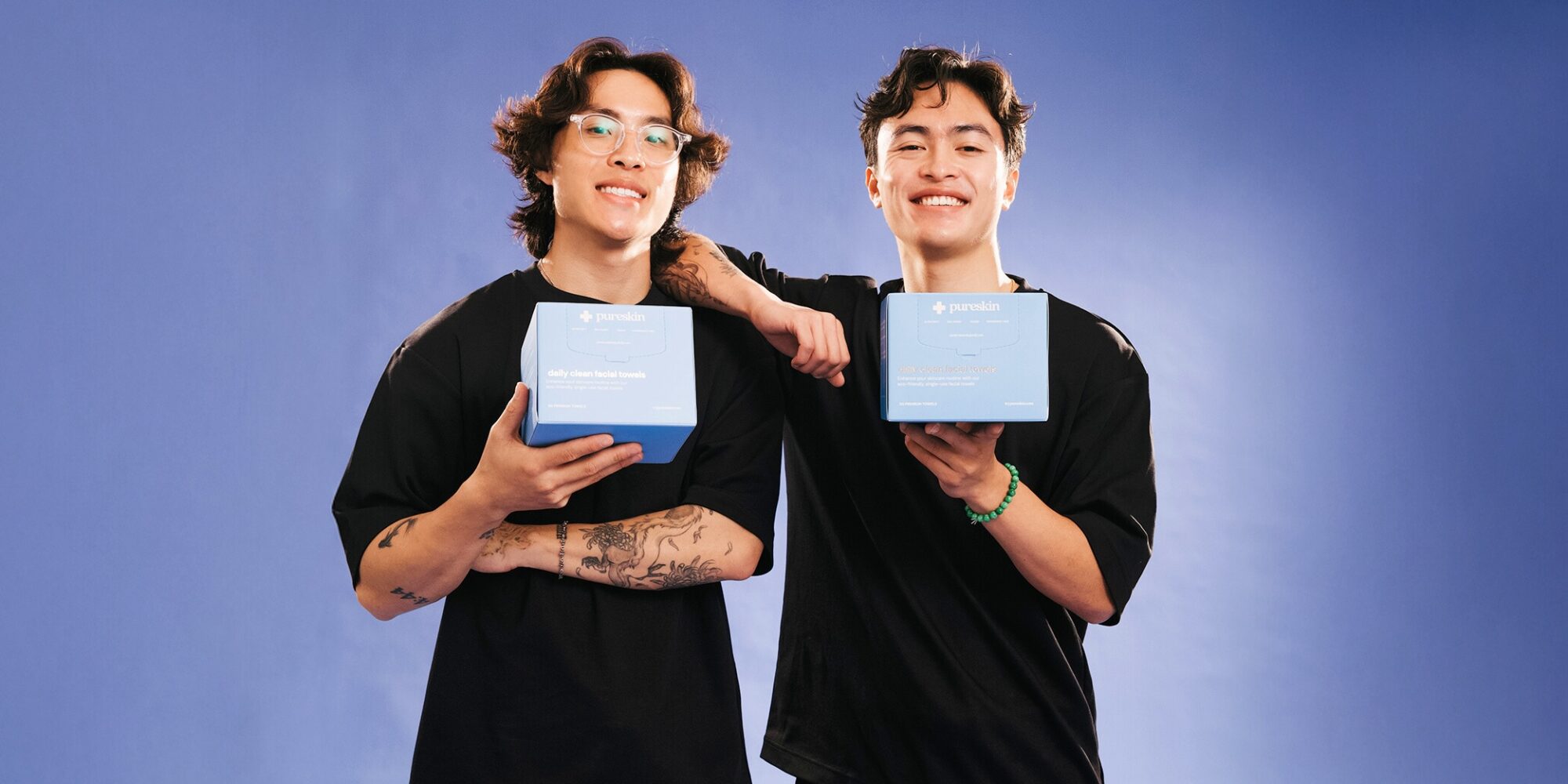
Pureskin’s Gen Z Founders’ Vulnerability Drives Early Success In the Tough Skincare Market
Co-founders and brothers Brandon and Bryan Chu’s willingness to be vulnerable about acne, a condition embarrassing for many, allowed them to break into the skincare business and break through with consumers, with their brand Pureskin generating as much as $500,000 in first-year sales.
“Putting our faces online and then having millions of people see it and us telling our story definitely wasn’t the easiest thing,” says Bryan. “But I think we’ve both grown to want to be more open with people and want to connect with people, and we’ve been getting a lot of positive feedback with the customers that we’ve served so far.”
The gen Z brothers—24-year-old Bryan lives in Orlando and 26-year-old Brandon lives in Boston—began offering single-use pure cotton towels on Pureskin’s website last November. Measuring 10 inches by 12 inches, the towels are priced at $30 for a pack of 50 sheets or $18 each for a subscription of multiple packs.
Designed for exfoliating and drying, the material is textured on one side and smooth on the other. Pureskin throws in a $15 silicone face scrubber as a free gift with each new subscription. To offset environmental concerns around single-use products, Pureskin pledges to plant a tree in Kenya for every order.
“We just chose skincare because it’s something that we’ve struggled with our entire lives,” says Bryan. “Since high school, we just started to break out really badly, and we spent probably years trying to figure it out.”
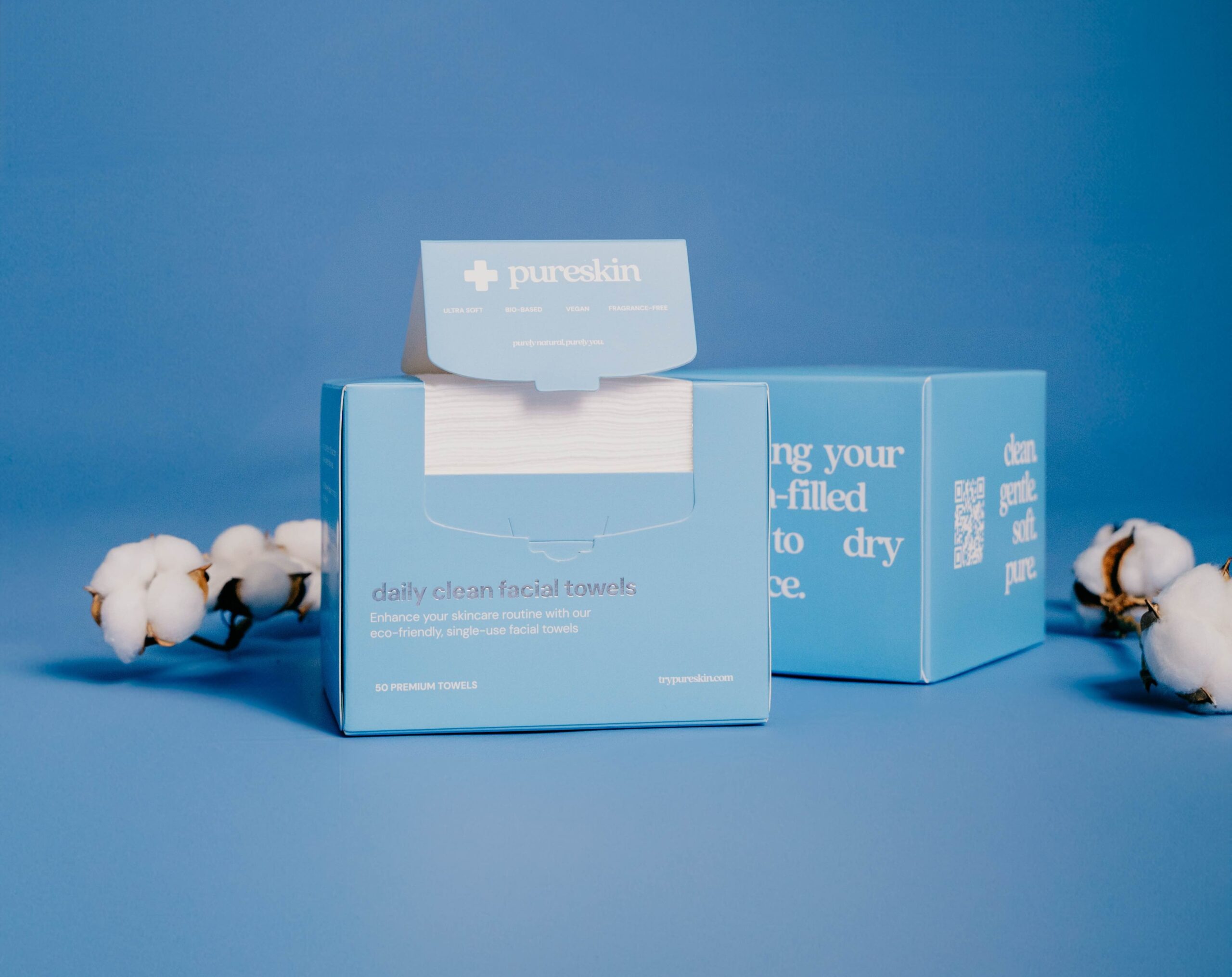
Long exhibiting an entrepreneurial spirit—the brothers shoveled snow off driveways for pay and sold Asian snacks online—the first-time skincare entrepreneurs previously experimented with all kinds of face treatments for acne, but the result was mostly irritation. Moving beyond the face treatments, they considered holistic approaches, including a healthy diet, regular exercise, shower water filtration and at least eight hours of sleep.
“We started also looking into preventative measures,” recalls Bryan. “And we learned about the dangers of towels and how much bacteria it collects over time and how unknown of an issue it is with most people.” Pureskin’s towel, he explains, is “meant to be a simple replacement for your towel. You get peace of mind knowing that it’s clean every single time.”
That peace of mind has attracted customers across the United States, from California to New York, and even from outside of it in countries like Canada and Germany. In its initial four months on the market, Pureskin tallied 1,500 orders. The brothers expect sales to hit between $300,000 and $500,000 in 2025.
While they originally anticipated a large female audience, they’ve been surprised that Pureskin’s customer base has a good mix between male and female, with a hefty portion 18 to 35 age range. The brand’s resonance with male consumers is coming as the U.S. men’s grooming market is growing.
“We just chose skincare because it’s something that we’ve struggled with our entire lives.”
Last year, Mintel estimates domestic sales for personal care products designed specifically for men were around $6 billion. A survey by the market research firm shows 52% of American men use facial skincare products, compared to 31% who did in 2022. Facial skincare is especially popular among gen Z men between the ages of 18 years old and 27 years old. Sixty-eight percent use facial skincare compared to 42% in 2022. Among 18- to 34-year-olds, 46% of men specify clean ingredients as a key factor when buying skincare.
Bryan says, “It’s OK if men can be vulnerable and be open about skincare and their issues or insecurities and things like that without having to, you know, be like a ‘manly man.’”
Plus, the brothers realize sharing their story as two male founders has boosted the performance of Pureskin’s social media posts and ads. Brandon notes, “Especially since we started filming more founder-style content, a lot of our customers actually have been Asian.”
Bryan and Brandon are learning quickly how to run a company, including managing the supply chain and switching to a fulfillment center in Los Angeles. After dropping out of college, Bryan began working in e-commerce handling drop shipments. Brandon has a degree in math and statistics. They’ve funded their company by dipping into savings and charging credit cards.
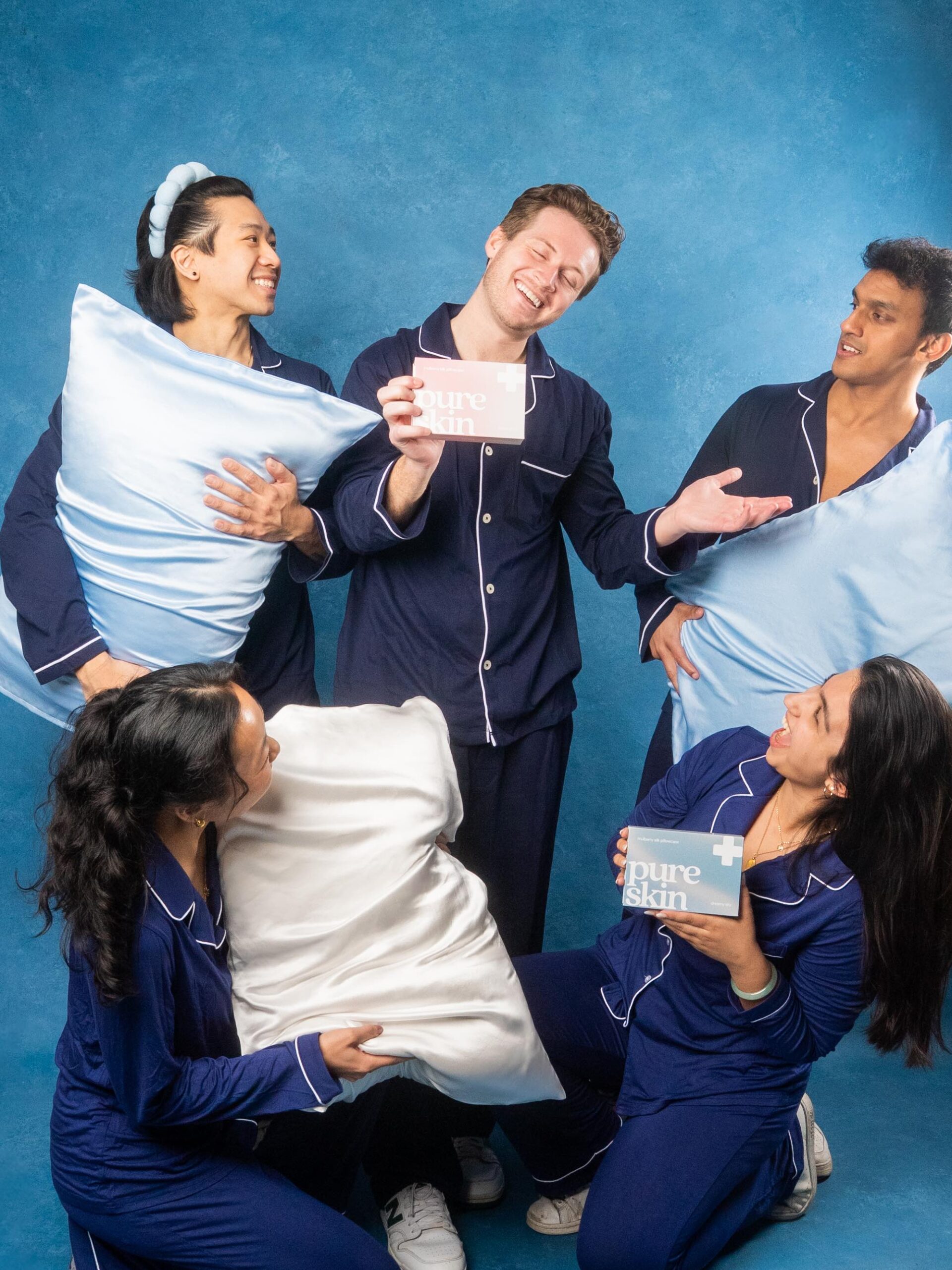
In March, Pureskin released several products for acne in rapid succession. It rolled out pre- and probiotic supplements intended to promote healthy skin. A month’s supply of 60 capsules is priced at $35. Then, it introduced washable silk pillowcases infused with silver ions for microbial protection, at $65 apiece. Next came Brazilian Arabica coffee enhanced with lion’s mane and chaga mushrooms ($25), a vanilla-flavored collagen creamer ($35), and sleep-enhancing supplements formulated with melatonin and botanicals like valerian root ($30).
Brandon says, “We’re prioritizing getting out the products that we think can sort of encapsulate the world of preventative skincare.”
That world stretches beyond the bathroom and kitchen to the laundry room. The brothers are developing laundry sheets that can be tossed into the washer. Steering clear of sulfates, phosphates and parabens, Brandon says, “We wanted to make sure that these laundry sheets were as free from chemicals as possible [like] skin irritants and were good for sensitive skin.”
To broaden its distribution reach, Pureskin aims to bolster its direct-to-consumer sales with orders on e-commerce superstore Amazon, though it doesn’t have a strict timeline for its Amazon debut. Within the next three years, it wants to sell in brick-and-mortar retailers such as Target and Walmart.
Above all, Pureskin is out to build a community both online and in person for its customers. “They can enter our space, and we can help them as much as we can, hopefully in the future with all these products that we have, that can solve things that they’re struggling with,” says Bryan. “It’s just a safe space for people to feel comfortable.”
